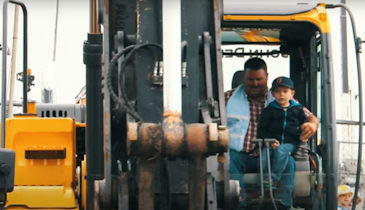Drain cleaners often charge a hefty premium for clogged-drain emergencies. Still, it makes sense to minimize such calls by educating customers about drain maintenance. After all, few contractors enjoy that SOS call from a restaurant or other commercial account on a holiday or late at night.
That’s why education makes sense. Whether it’s a verbal presentation to a restaurant’s employees, or a leave-behind brochure or DVD that explains the ABCs of drain maintenance, keeping customers informed and alert is a big help.
Contractors who do so appear more professional, and that just might pave the way to maintenance contracts that provide a steadier revenue stream and make scheduling of work more manageable. Here’s how several cleaners handle drain education:
“Education is a constant process,” says David Boggs, manager of grease trap operations for Valley Proteins in Winchester, Va. “You have to explain to the customer what’s going on. Most customers don’t understand what you’re doing to begin with. They don’t understand that they have home fries or a roll of toilet paper stuck in the drain because they have poor kitchen management skills.
“We don’t tell them their kitchen manager is bad. But we do tell them they need to work on their kitchen manager’s skills in terms of what they put down the drain. We like to gather their staff around and give presentations that usually last about an hour.
“We talk about grease traps and line cleaning and all things associated with that, and how to keep the lines clean. Despite that, it never fails – the line’s going to back up at 7 p.m. on Friday night on Valentine’s Day weekend. You don’t want those things to happen at the wrong time.
“We emphasize that an ounce of protection will save them a ton of money. But it’s hard to get people to understand. They say they can’t afford preventive maintenance, but then they end up paying, say, eight times more for an emergency call. It’s a valuable lesson to learn, but it’s a hard lesson, too.
“We also hand out a kitchen manager’s booklet. It’s about four pages long and explains best drain-management practices. We’re also working with another customer to produce a video. But it seems no matter what you do, you’re toying with the devil. Clogs are going to happen. It’s inevitable. There are too many minimum-wage employees that don’t care.”
“When we make an emergency call, the customer usually goes back and talks to their crew – the people doing the cooking, cleaning and sanitation – and tells them they can’t keep putting this stuff down the drains,” says Mike Kampenga, a supervisor at Expert Plumbing Service Inc. in Chicago, Ill.
“But it always ends up the same. Language barriers in food service don’t help, nor do teenagers working for minimum wage in fast-food restaurants. They don’t have to pay the bill for us to come in on a Sunday night to open up a drain.
“So the goal of our education efforts is to set up a maintenance program where we clean the lines on a regular basis. This helps us with client retention, because if they keep having to call you out for blocked drains in the middle of the night, eventually they start to think you’re just not doing a good job – even though the fact is that people keep throwing the wrong stuff down there. Sometimes owners don’t believe it, but the evidence is there.
“So if you can come in and hydrojet on a regular basis, they don’t even have to think about it. They pay for it ahead of time and it’s budgeted. And all of a sudden, they’re not calling you up so much. They’re happy, and you know you have this job every other month or so. It’s easy to schedule and provides a steady revenue stream. You’re a happy little guy.
“We show clients the numbers in a proposal to help them understand the benefits of regular maintenance. Say they’re spending $5,000 a year on calls, and you can offer a maintenance program that’s half the cost. At the end of the year, they’ve saved $2,500 and they’re going to think you’re the best plumber that ever walked down the street.
“Plus, they won’t be disrupted on Valentine’s Day – that’s a great day for a restaurant to have a sewer blockage. Or a butcher shop on Memorial Day weekend. People come in to buy their steaks for grilling and there’s sewage running down the aisles. Plus, you’ll be home for the holiday instead of out on an emergency call.”
“We sell products that help customers keep their drains open and clean,” reports Marty Brewer, co-owner of Brewer’s Septic & Portable Toilets in Ovid, N.Y. “It makes them aware that maintenance is required to keep drains flowing. We also leave a brochure behind on each job site. We buy the brochures from a product manufacturer.
“We also use our inspection camera to educate customers. After we camera a sewer line, we always show the homeowner or commercial owner what we found and what they can do to correct the problem. It’s more effective than anything else we do.
“A picture is worth a thousand words, believe me. When they see you pulling out a 4-inch-thick plug of grease from a 12-inch line and it looks like a boat coming out, they’re like, ‘How’d that get there?’
“I think education is a big point. It makes customers respect you as a professional – they realize that you’re actually trying to help them out. Educating them also helps sell them on a regular maintenance program. We’d much rather do regular maintenance. Scheduled work is going to cost them way less than one emergency call.”





